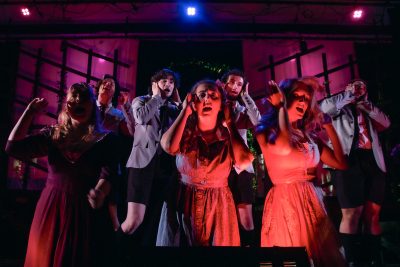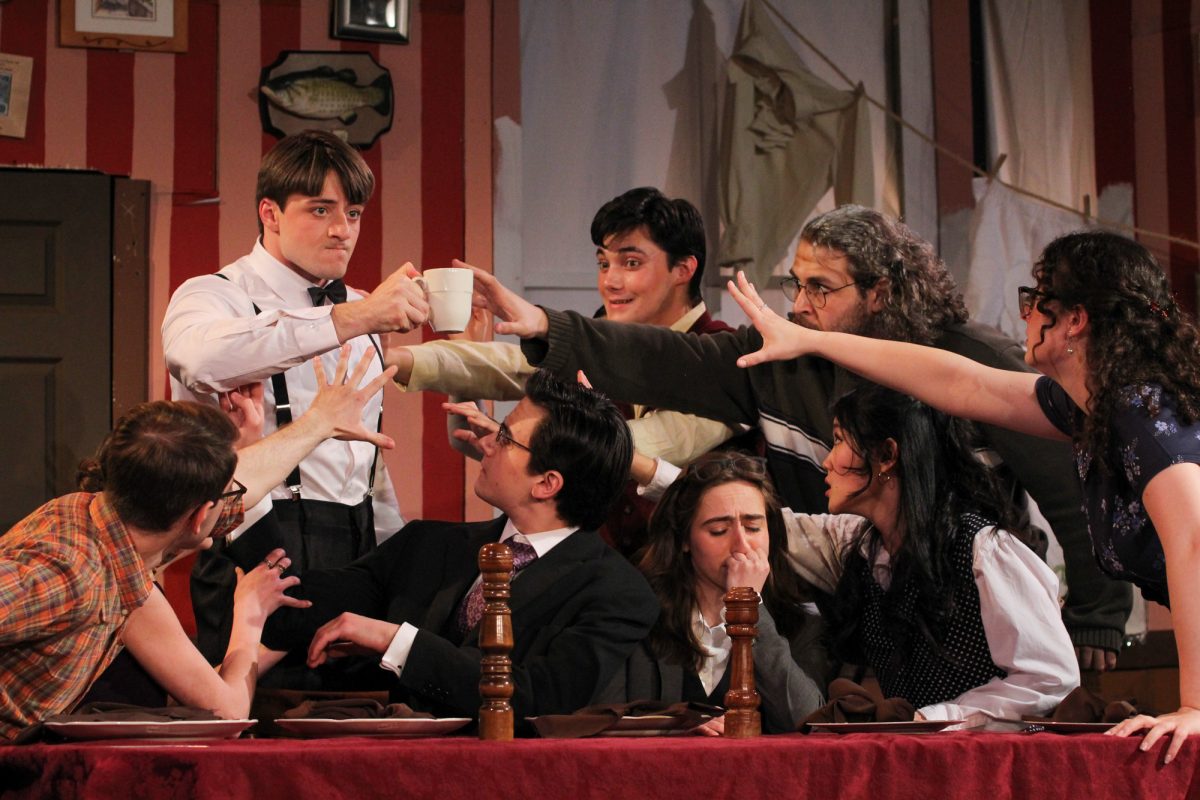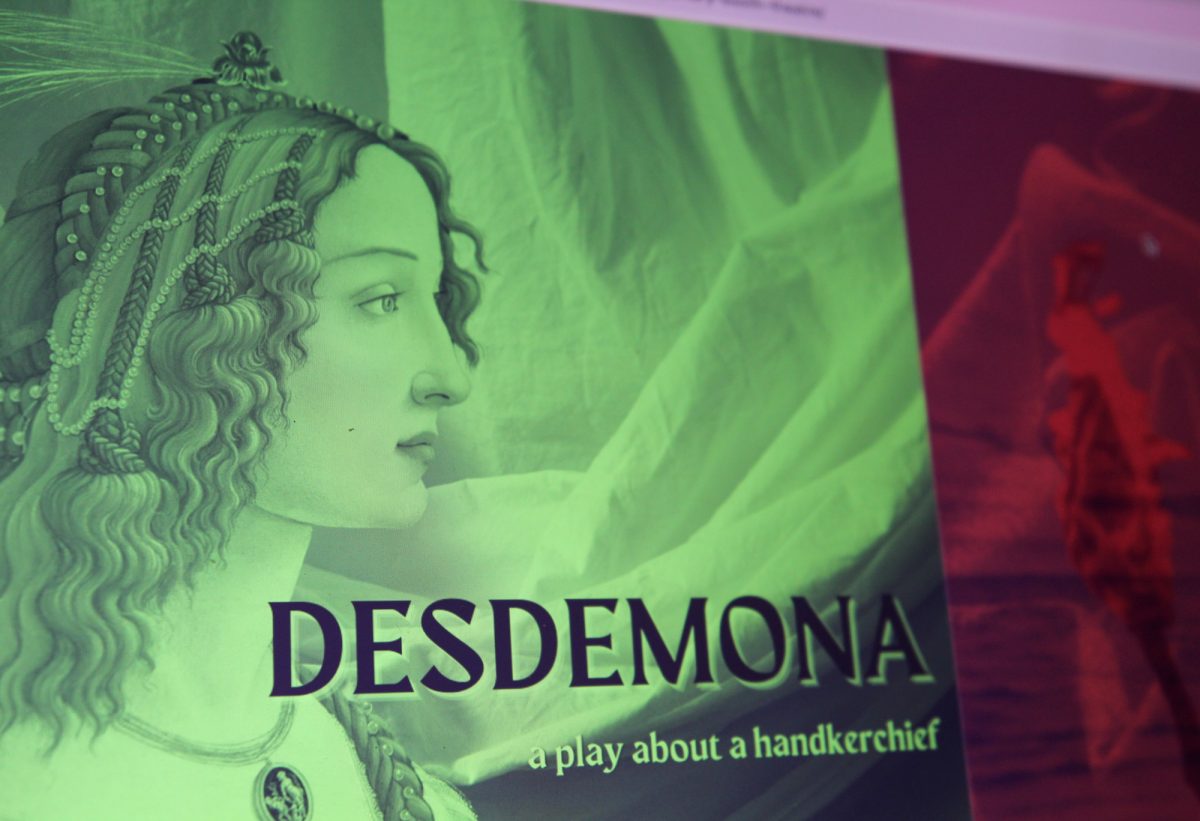The only thing bolder than practicing atheism in a strict religious society is performing a musical called “Spring Awakening” on the first weekend of December.
Boston University on Broadway premiered its rendition of “Spring Awakening,” on Nov. 30 at the Student Theater at Agganis Arena. Co-directed by Elizabeth Ritter and Leah Katz, Thursday’s performance was the first of four sold-out shows between Nov. 30 and Dec. 2.
“Spring Awakening,” written by Steven Sater and composed by Duncan Sheik, is a musical with content and themes that would make even the most avid “Euphoria” fan blush.

The show, set in 19th-century Germany, follows a group of teens struggling to cope with their sexual awakenings in a religious society that wants them to live without sin.
It begins with Wendla, brilliantly played by Hannah Dubroff, begging her mother to tell her where babies come from. Dubroff’s performance was strong, but I do think it was confusing to begin with Wendla, given her relative absence from the following three scenes. I digress — this sequence is a “Spring Awakening” problem, not a BUOB one.
In fact, most of my gripes with the show have to do with the plot and structure of the original story. Some beats feel awkwardly placed or rushed, but BUOB’s rendition superbly elevated the material.
Dubroff is the first cast member to sing, and throughout the performance’s entirety, her voice is captivating. Her voice seemed to actually get stronger as the show went on, to the point where her belting voice soared over the dozen other voices during the finale number, “The Song of Purple Summer.”
Even more impressive than Dubroff’s voice is her control of vocal inflection and volume during the speaking parts. Her voice is soft and sweet when she speaks to Melchior, but jagged and piercing when she yells at her mother.
Melchior is similarly captivating. Zach Schwartz’s looming figure and commanding voice enable him to realistically portray Melchior as someone who strongly influences and is well-respected by his peers.
When Dubroff and Schwartz finally share their first one-on-one scene during “The Word of Your Body,” it becomes clear why they are playing Wendla and Melchior — their voices soar above the haunting piano lines.
This scene showcased another reason for the casting — Melchior and Wendla’s conversations are the best non-musical parts of the performance.
However, the highlight of the show as a whole was Kai Farr as Moritz. Moritz undergoes a grueling arc throughout the show and his anguish is crucial to the musical’s themes, so BUOB needed to cast someone who would kill it as Moritz.
Farr kills it.
His voice drips with tortured, whiny angst that perfectly encapsulates Moritz’s inner struggles. Farr’s physical acting, particularly his facial expressions, also plays a significant part in capturing Moritz’s turmoil.
Farr’s best performance comes early in Act II, in his scene with Natalie Hawkins’ Ilse. The climax of Moritz’s arc, “Don’t Do Sadness,” followed by Ilse’s “Blue Wind,” was a spectacular highlight of the show. Hawkins’ performance made me wonder why it took until Act II for Hawkins to grace us with her singing presence.
Michael Jay Rodriguez, who played Georg, also stole a scene with his vocals. His solo in “Touch Me” featured the most beautiful falsetto by any comic-relief character I’ve ever heard.
Sophie Sampliner displays some of the best acting range as Adult Woman. Her dominating presence when she plays villainous characters is legitimately fearsome. More impressive yet is how she seamlessly slips into the role of Melchior’s nurturing mother just one scene later.
As great as its performances were, the production wasn’t perfectly smooth. But, this allowed BUOB to display their adaptability and professionalism.
The chorus’ voices got muddy at a few points in the first act, but by the first song of Act II, “The Guilty Ones,” they had adjusted and delivered a more cohesive mix.
When the set’s main piece, a rose-covered trellis, started to fall early in the show, two hands snuck from behind the curtain to hold it up until the next scene, and the show kept rolling.
The stage itself also felt small. While the cast moved around well, the space felt cramped — not a shortcoming on BUOB’s part, but another display of their adaptability.
More prominent than any issue with the set or sound, however, is the fact that the cast was having fun. When they began jumping up and down during “The Song of Purple Summer,” I was waiting for the lights to come on so I could stand and cheer, too.























































































































Rose Farr • Dec 5, 2023 at 12:29 pm
I have seen productions from this group. Also wonderful. Glad to hear this was no exception. Bravo